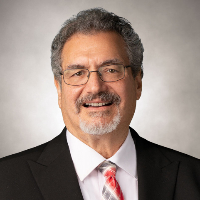Villa Park RICO Act Lawyer, Illinois
Sponsored Law Firm
-
 x
x

Click For More Info:
-
The Law Offices of Richard L. Cooper, P.A.
848 Brickell Avenue Suite 800 Miami, FL 33131» view mapDWI/DUI, Drug Trafficking, Felony Nationally Ranked Top 40 Under 40
With Richard L. Cooper you can expect a trusted confidant who will work diligently to fully understand your case and determine a road map to help you regain control of your life.
800-756-2781
Not enough matches for Villa Park RICO Act lawyer.
Below are all Villa Park Criminal lawyers.
Steven H. Mevorah
✓ VERIFIEDSteven H. Mevorah is the founder of Mevorah & Giglio Law Offices and began his practice in 1979. Mr. Mevorah brings significant experience to bear in ... (more)
Naveed S. Husain
Attorney Naveed Husain is the managing partner of Farooqi & Husain, LLC. He concentrates on the areas of family law, estate planning, and business fo... (more)
Faraz Nayyar
CALL 24/7 FOR A FREE CONSULTATION!
Omar Farooq Khan
Attorney Omar F. Khan received his Juris Doctorate from The Ohio State University – Moritz College of Law and is admitted to practice in Illinois an... (more)
Vincent C. Machroli
✓ VERIFIEDOVER 30 YEARS OF EXPERIENCE IN FAMILY LAW, ESTATE PLANNING, REAL ESTATE, AND BANKRUPTCY LAW At the Law Office of Vincent C. Machroli, P.C., we are ... (more)
Laura M. Urbik Kern
FREE CONSULTATION
CONTACT
 Richard L. Cooper Miami, FL
Richard L. Cooper Miami, FL AboutMiami Attorney at Law
AboutMiami Attorney at Law ServicesCriminal Defense
ServicesCriminal Defense





